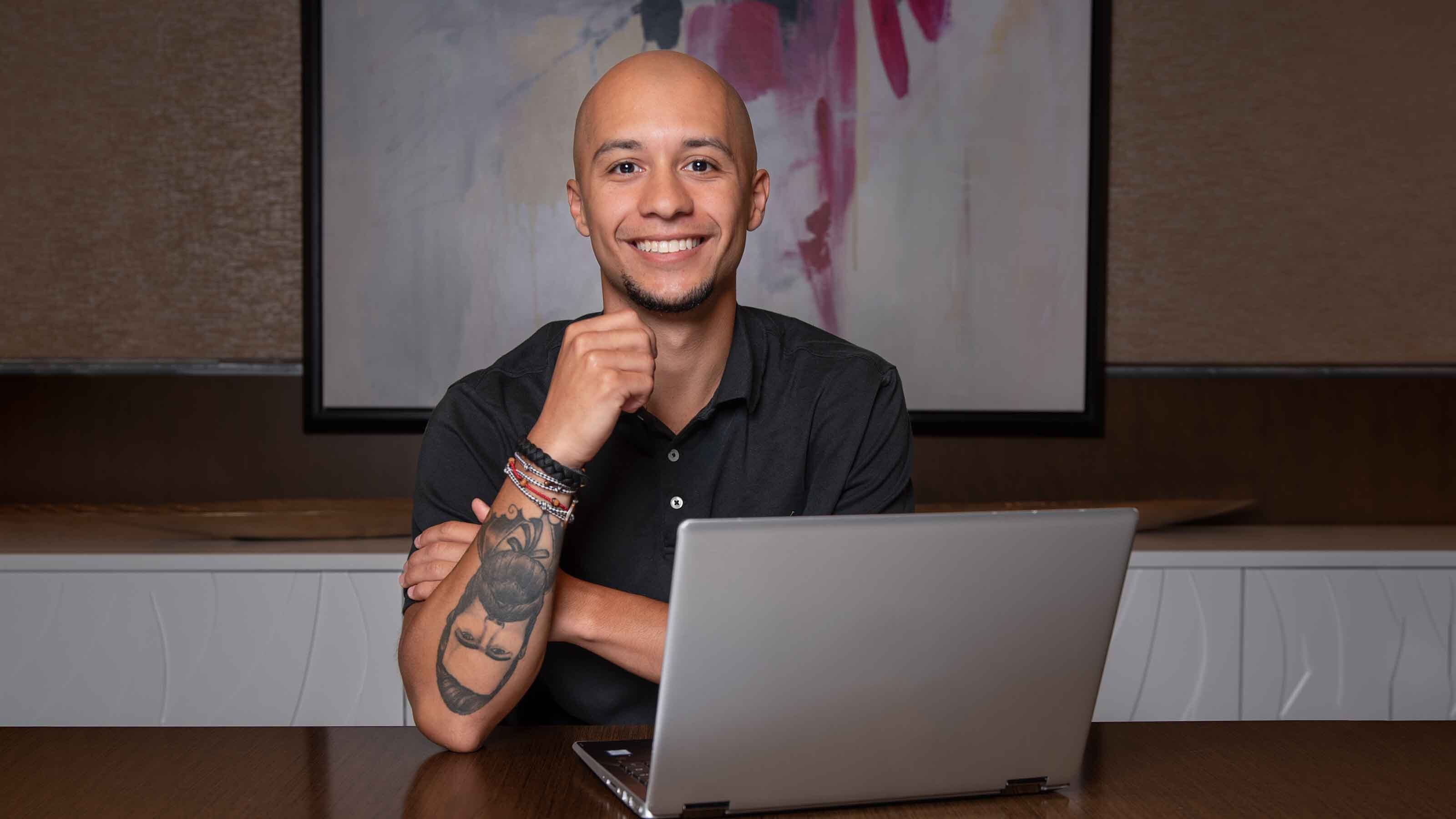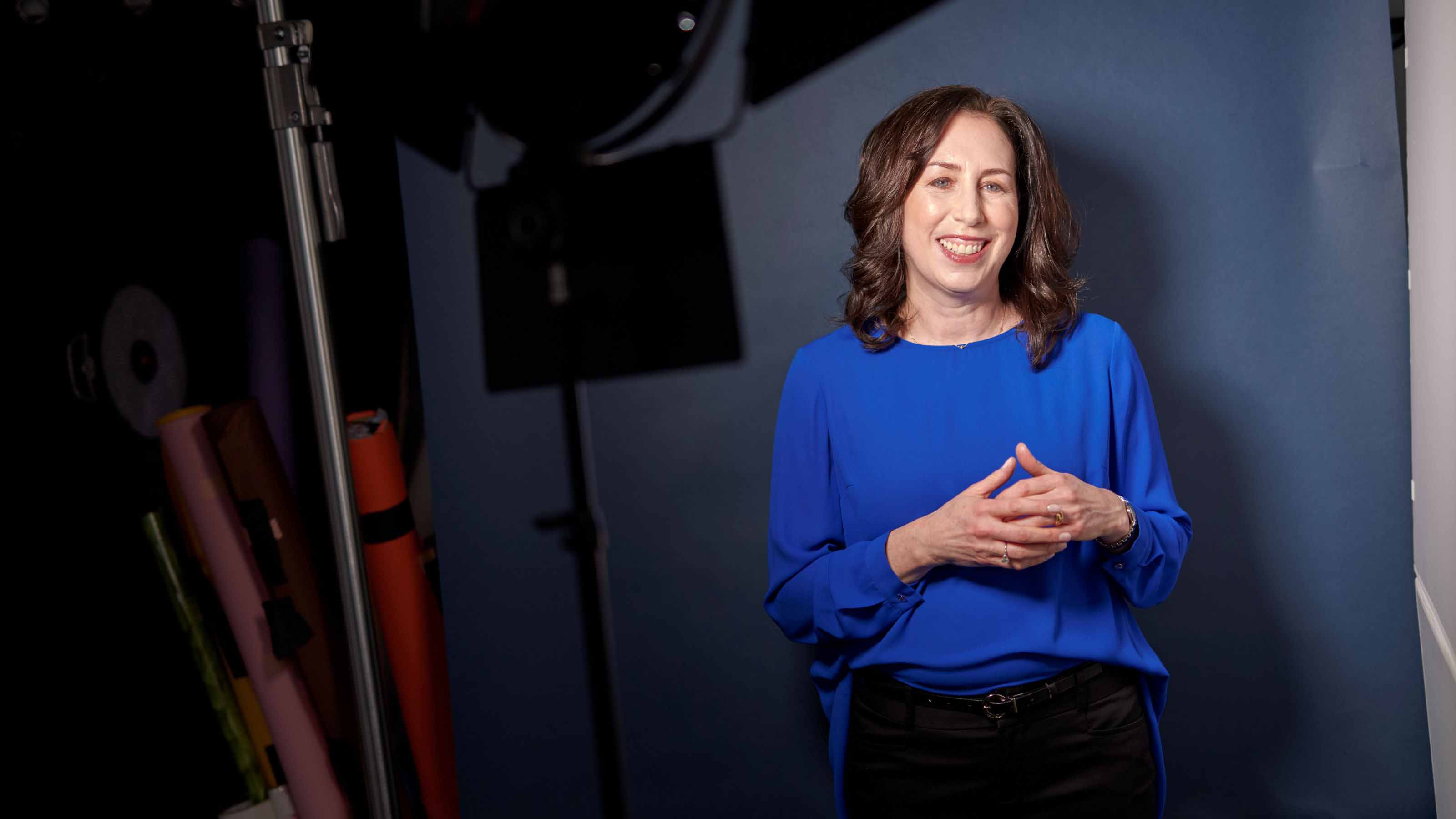5 Smart Money Moves for Young Adults
These easy strategies can help you get started on the road to financial independence.

Profit and prosper with the best of Kiplinger's advice on investing, taxes, retirement, personal finance and much more. Delivered daily. Enter your email in the box and click Sign Me Up.
You are now subscribed
Your newsletter sign-up was successful
Want to add more newsletters?

Delivered daily
Kiplinger Today
Profit and prosper with the best of Kiplinger's advice on investing, taxes, retirement, personal finance and much more delivered daily. Smart money moves start here.

Sent five days a week
Kiplinger A Step Ahead
Get practical help to make better financial decisions in your everyday life, from spending to savings on top deals.

Delivered daily
Kiplinger Closing Bell
Get today's biggest financial and investing headlines delivered to your inbox every day the U.S. stock market is open.

Sent twice a week
Kiplinger Adviser Intel
Financial pros across the country share best practices and fresh tactics to preserve and grow your wealth.

Delivered weekly
Kiplinger Tax Tips
Trim your federal and state tax bills with practical tax-planning and tax-cutting strategies.

Sent twice a week
Kiplinger Retirement Tips
Your twice-a-week guide to planning and enjoying a financially secure and richly rewarding retirement

Sent bimonthly.
Kiplinger Adviser Angle
Insights for advisers, wealth managers and other financial professionals.

Sent twice a week
Kiplinger Investing Weekly
Your twice-a-week roundup of promising stocks, funds, companies and industries you should consider, ones you should avoid, and why.

Sent weekly for six weeks
Kiplinger Invest for Retirement
Your step-by-step six-part series on how to invest for retirement, from devising a successful strategy to exactly which investments to choose.
Working for Kiplinger's has its perks, not the least of which is constant exposure to savvy financial advice. Especially for those of us who joined the staff early in our careers, we've been lucky enough to learn the best ways to handle our money. Here are some of the valuable tips we've picked up on the job, starting with my own lesson:
Set Up an Emergency Fund
For years, when I had a financial crisis, I would speed-dial the Bank of Mom and Dad. I expected them to bail me out of tough financial surprises, from parking tickets to big dental bills. My backup plan was to charge emergencies to a credit card.
The former strategy cost me in a strained relationship with my parents. How sad it must have been for them to get a call from me only to realize the chat would cost them hundreds of dollars. The credit card approach came with interest and lowered my credit score.
From just $107.88 $24.99 for Kiplinger Personal Finance
Become a smarter, better informed investor. Subscribe from just $107.88 $24.99, plus get up to 4 Special Issues

Sign up for Kiplinger’s Free Newsletters
Profit and prosper with the best of expert advice on investing, taxes, retirement, personal finance and more - straight to your e-mail.
Profit and prosper with the best of expert advice - straight to your e-mail.
After I started working for Kiplinger, I learned that I needed an emergency fund that can cover six months’ worth of expenses, stashed in an easy-to-access savings account. Now, I put $100 a month into an American Express online account and add any extra income, such as holiday bonuses or birthday gifts, if I can.
Providing myself with a cash safety net is the key to making my way to financial independence. It’s still a bummer to shell out the money to cover, say, replacing a furnace worn out by a polar vortex–plagued winter. But at least it doesn’t cost me extra interest or, worse, the respect of my parents.
For more information, see 7 Strategies to Build an Emergency Fund.

Scrounge to SaveBy Ryan Ermey
While working as an intern at Kiplinger’s, I wait tables on the side. Holding down two jobs isn’t an ideal situation, but it has allowed me to pursue a career in writing while keeping food on the table and a roof over my head.
Washington, D.C., is an expensive city, and I’m on a shoestring budget, but I still contribute a small chunk of my paycheck—$100 a month—to my 401(k) plan. Kiplinger’s plan has the option of a Roth 401(k), and that’s what I use. I don’t get a tax break on the money I contribute, but I’ll get to make tax-free withdrawals in retirement. (And it’s a safe bet, considering my intern’s wages, that I’ll retire in a higher tax bracket than the one I’m in now.) I put all of my money in stock funds. At my age, I can take on the extra risk and go for a better return.
You read a lot about the “magic” of compounding. But it’s not magic. It’s math. The numbers say contributing as early and as consistently as I can is going to make me richer by the time I retire. That makes it worth working a little harder and living a little more modestly right now.
For more information, see Free Money for Retirement.

Balance Debt Payments and SavingBy Susannah Snider
Sometimes you can overdo a good thing. I have a manageable, ten-year repayment plan for my federal student loans, but I used to put every spare penny toward my student debt. I loathed having that five-figure number hanging over my head like a rain cloud. If I had a security deposit returned, I’d pay down my student loans. If I received a birthday check from my favorite aunt, I’d pay down my student loans. Got a raise? Yup, I’d pay down my loans.
But my tunnel vision wasn’t helping my overall financial health. I was paying down debt at the expense of my emergency fund and retirement savings. When my laptop gave up the ghost, I didn’t have enough cash on hand to buy a new one. My 401(k) was meager at best.
It took a year or so after graduation to realize that my monthly student-loan payments weren’t the only piece of my financial picture. I needed to build a cash cushion for unexpected expenses and start saving for the future. I’ve scaled back and now pay the monthly amount based on the ten-year plan, focusing instead on saving for retirement and putting up to 10% of my paycheck into an emergency fund.
For more information, see Don't Stress Over Student Loans.

Get a RoommateBy Lisa Gerstner
When I started working in the Washington, D.C., area after graduating from college, two friends and I lived in a townhouse that I loved. It provided easy access to public transportation, and it had a backyard patio as well as a spacious basement that came with a pool table.
By splitting the bills for rent and utilities three ways, my roommates and I kept our monthly housing expenses to about $900 per person—a fair price in a region with a high cost of living. Since then I’ve moved a few times, but I continued to share housing costs with a roommate. We found apartments that we could afford, in safe neighborhoods that were near the Metro and had a lot of young professionals. My current roommate and I are even comfortable splitting the price of some memberships, such as Amazon Prime and Costco.
Without housing expenses draining most of my paycheck, I’ve been able to save for retirement and spend money on things I value, such as travel. And I’m debt-free. I’ve never known the pleasures of living alone, but I’m convinced that living within my means feels even better.
For more information, see 8 Reasons You Fight with Your Roommates About Money.

Reshop Your Car InsuranceBy Jessica Anderson
Writing about cars has its perks—such as driving new cars all the time. I still have my 1997 Honda Civic, which I drive once a week, but the insurance premiums seemed high. While working on a story about Progressive’s Snapshot tool, I gave it a test drive.
Here’s how it works: You plug a palm-size tool into the diagnostic port in your car, and it pulls data from the car’s computer and sends it to the company via a cellular network. The tool tracks the time of day you drive, your mileage, and your acceleration and braking rates. (Allstate’s Drivewise works the same way.) After 30 days, you may earn an initial discount; after six months, you send the tool back and become eligible for a permanent discount of up to 30%.
My monthlong test-run results showed I would qualify for 30% off with Snapshot, so I signed up. During the six-month monitoring period, I gave in to bad city-driving habits—some rapid accelerations and sudden braking—and earned only a 21% discount. But with discounts for being accident-free and having my homeowners insurance with Progressive, my rates went down even more.
For more information, see Getting Your First Car Loan.
Profit and prosper with the best of Kiplinger's advice on investing, taxes, retirement, personal finance and much more. Delivered daily. Enter your email in the box and click Sign Me Up.

Rapacon joined Kiplinger in October 2007 as a reporter with Kiplinger's Personal Finance magazine and became an online editor for Kiplinger.com in June 2010. She previously served as editor of the "Starting Out" column, focusing on personal finance advice for people in their twenties and thirties.
Before joining Kiplinger, Rapacon worked as a senior research associate at b2b publishing house Judy Diamond Associates. She holds a B.A. degree in English from the George Washington University.
-
 Dow Adds 1,206 Points to Top 50,000: Stock Market Today
Dow Adds 1,206 Points to Top 50,000: Stock Market TodayThe S&P 500 and Nasdaq also had strong finishes to a volatile week, with beaten-down tech stocks outperforming.
-
 Ask the Tax Editor: Federal Income Tax Deductions
Ask the Tax Editor: Federal Income Tax DeductionsAsk the Editor In this week's Ask the Editor Q&A, Joy Taylor answers questions on federal income tax deductions
-
 States With No-Fault Car Insurance Laws (and How No-Fault Car Insurance Works)
States With No-Fault Car Insurance Laws (and How No-Fault Car Insurance Works)A breakdown of the confusing rules around no-fault car insurance in every state where it exists.
-
 Debit Cards vs Charge Cards
Debit Cards vs Charge Cardscredit & debt Whether sticking to a budget or reaping big rewards, understand whether debit cards vs charge cards are right for you.
-
 Four Smart Steps To Take Before Buying Your First Home
Four Smart Steps To Take Before Buying Your First Homehome Buying your first home can be daunting. Here are four things you need to do years before you start house-hunting to prepare financially for the biggest purchase of your life.
-
 The 15 Cheapest Places to Live: US Cities Edition
The 15 Cheapest Places to Live: US Cities Editionplaces to live Have a look at the cheapest places to live in America for city dwellers. Is one of the cheapest places to live in the U.S. right for you?
-
 Sharing His Path to Success
Sharing His Path to SuccessStarting Out: New Grads and Young Professionals This Native American studied tech in the Air Force and landed his dream job. Now he’s giving back.
-
 PODCAST: How to Find a Job After Graduation, with Beth Hendler-Grunt
PODCAST: How to Find a Job After Graduation, with Beth Hendler-GruntStarting Out: New Grads and Young Professionals Today’s successful job applicants need to know how to ace the virtual interview and be prepared to do good old-fashioned research and networking. Also, gas prices are high, but try a little global perspective.
-
 Preparing for a New Life
Preparing for a New LifeStarting Out: New Grads and Young Professionals While this Afghan refugee waits for resettlement, she is working to bring her family to the U.S.
-
 When It’s Time to Drop Your Parents’ Health Insurance
When It’s Time to Drop Your Parents’ Health InsuranceStarting Out: New Grads and Young Professionals Thanks to the Affordable Care Act, the uninsured rate for twenty-somethings has plummeted.
-
 Financial Planning We Can Afford
Financial Planning We Can AffordFinancial Planning You don't have to be a wealthy baby boomer to hire a financial adviser.